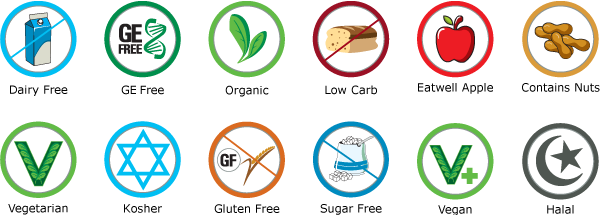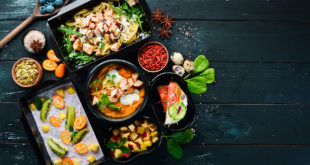Imagine sitting down at a restaurant and being met with disgust when you question a menu item; unfortunately, that’s what a lot of people with dietary restrictions are being met with when they dine out. The message here isn’t that every restaurant is this way, but rather that you should think about how your restaurant is making certain patrons feel, and why they are choosing to eat elsewhere.
Examples Are Always Good
My son has tree nut allergies, and I’ve been there when his throat started to close up simply because the person serving the food said that there was absolutely no nuts in any of our meals (we are nut-free altogether, because his allergy is so sensitive), and we trusted them when they said that. I’ve also seen how the server rolls their eyes when I tell them how important it is to not have nuts anywhere near our plates.
I have friends that are vegetarian and vegan and get the cold shoulder when it comes to being choosy on their menu choices. They have specific needs and have to ask questions like whether the soup broth is vegetable or meat based, if the grease used was vegetable or bacon grease, and if butter was used to grill the veggies. And at some restaurants they visit, they know that these types of questions will likely result in a bad dining experience that includes eye-rolling and a Chef that’s less than happy to adjust the menu choice – who wants to eat food from an upset Chef?
I’ve also been the waitress that had to chat with the Chef about what’s in a certain dish, and have the Chef reply, “Just tell them what they want to hear;” meaning, even if the soup has meat based broth, I’m supposed to say vegetable broth. I’m sure those of you that are vegan or vegetarian are cringing right now – I did when I was told that – but I did the right thing; I told the customer that the soup probably wouldn’t be a good choice for them. I can’t say this incident happens all the time, but I’m sure it happens more often than not.
Changing Up the Menu
Your restaurant can decide not to serve people with dietary restrictions, but with the way things are going, the number of people with a limited diet is only going to grow and this could be a potential loss in revenue. Currently, 10% of Americans consider themselves to be Vegetarian, Vegan, or Vegetarian-Inclined, and 7% of Americans have food allergies that fall into the “Big 8”: milk, peanuts, shellfish, tree nuts, eggs, fish, soy, and/or wheat. That’s a total of 17% of Americans that must be a bit more cautious when picking what restaurant to dine at, and there are plenty more diets that fall under the “special menu” umbrella:
[unordered_list style=”green-dot”]- Asian
- Bland
- Children
- Diabetic
- Gluten-Free
- Hindu
- Japanese meal
- Kosher
- Low-Calorie
- Low-Cholesterol
- Low-Fat
- Low-Sodium
- Muslim
- Passover
…just to name a few.
If you’re thinking to yourself “There’s no way I’m changing my menu to accommodate every new diet that pops up,” I’d recommend taking a look at how other companies are successfully doing this:
[unordered_list style=”green-dot”] [/unordered_list]People don’t expect you to be everything to everyone, but they are going to do their research to see if dining at your restaurant is worthwhile for them; and believe me when I tell you that there’s site after site devoted to helping people with dietary restrictions find the right restaurants. Some are national sites, but most are local, and do a great job of keeping up on the latest restaurant openings and where to eat: like Vegan Coloradical, a site that has almost 500 pages devoted to Vegans eating, living, and traveling in Colorado.
He’s Just A Hungry Man
The next time someone walks into your restaurant and asks for a menu choice that’s just a little different than what’s listed on the menu (as my Vegan co-worker said),
“The one vegan who eats at your restaurant isn’t trying to tell you you’re wrong for the way you do things, or the way you eat. He’s just a hungry man looking to grab some food with friends who aren’t vegan.”
 Corner Booth Blog | TundraFMP Restaurant Supply, News & Equipment Blog
Corner Booth Blog | TundraFMP Restaurant Supply, News & Equipment Blog




